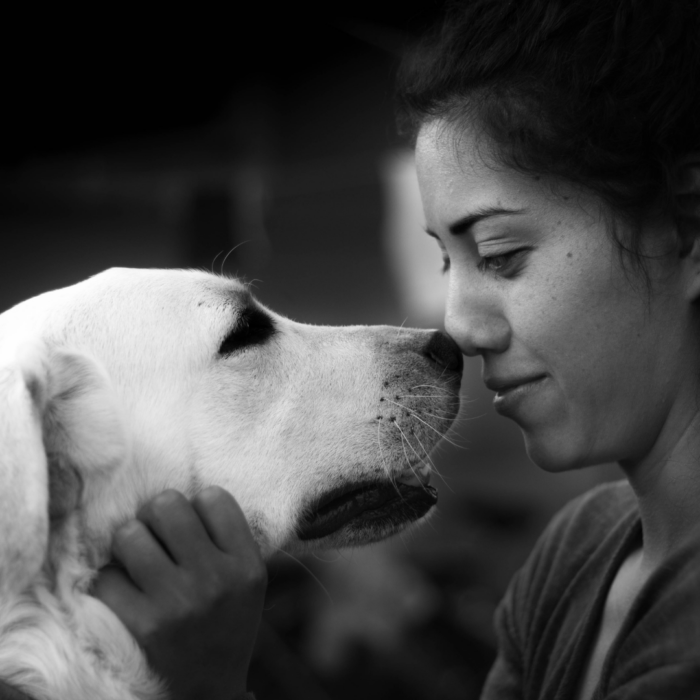In episode 59 of the Paws & Reward Podcast, Lisa Mullinax, certified dog behavior consultant, and I discuss compassionate communication and how to have those hard conversations in the most empathetic and effective way. What kind of issues lead to these difficult topics? How can we be better listeners? And what if we come up against our own ethical boundaries? We share stories from the shelter world as well as our own personal experiences while recognizing that we, too, are still learning and growing. Watch our conversation on my YouTube Channel.
What are some common challenging topics we come across as behavior consultants that we could use compassionate communication skills?
Some of these challenging topics may include encountering outdated dog training beliefs, whether the client or other trainer is/has used aversives, and rehoming or euthanasia decisions.

Outdated beliefs can be met with empathy before judgment. Kathy Sdao always says, “Empathy before education.”
When a client has used aversives (prong collars, electronic collars, punishment-based techniques) in the past, it’s ideal to exercise compassion and curiosity. Self-managing our response and asking open-ended questions allows us to put our assumptions aside and collaborate together on the behavior modification plan moving forward. Taking something away from a client that they perceive is working or keeping them and their dog safe does not build trust between parties.
When counseling about rehoming or euthanasia decisions, we have a responsibility to guide, not dictate. Talking about risk and the available options can be done with care and grace. These are beloved pets and the pain that comes during these conversations can be a lot to navigate for everyone involved. Over time, we can develop certain necessary skills that help navigate these delicate and tough conversations.
What are some necessary skills to have for compassionate communication?
The first skill is listening. There are different types.
Level 1: Listening to something and thinking about how it relates to you.
- We tend to miss important things when listening at level one.
Level 2: Undivided attention is entirely on the speaker.
- Putting aside how this is going to impact you, instead, you consciously drop into the conversation without attaching personal meaning.
Level 3: Completely focused on the person with a broader focus on hearing more than what they’re saying.
- You pick up on tone, energy levels, and body language changes
Other skills are:
- Curiosity – asking open-ended questions that help gather clarity around your assumptions.
- Empathy – the ability to understand and share the feelings of another’s situation, choices, and abilities.
- Restating – echoing back what you heard to clarify better.
- Understanding unmet needs – this can include listening to boundaries for both parties as well as acknowledging a lack of resources.

What if a situation crosses your ethical boundary?
Boundaries are healthy to have and maintain, but it takes skill and compassion to maintain them in a kind way. When we come up against our personal ethics, asking open-ended questions can clarify the situation. If we are still in an ethical hard spot, it’s best to be honest and gentle while stepping away. Guiding clients toward other trainers who may be a better fit can help ease the situation.
Why does compassionate communication matter?
When we listen with the intent to truly understand someone’s point of view, especially when it’s different from our own, we expand our own perspectives and learn more than we ever imagined possible. Empathy and curiosity go hand in hand. Asking open-ended questions without judgment allows people to feel safe sharing their experiences. All of this leads to possible solutions, emotional support, and connection.
Where to find Lisa Mullinax:
Other Resources:
- CogDog Radio Podcast Episode: Case Resolution with Lisa Mullinax
- Ep #20: Help! My Dog Bit Someone with Lisa Mullinax

